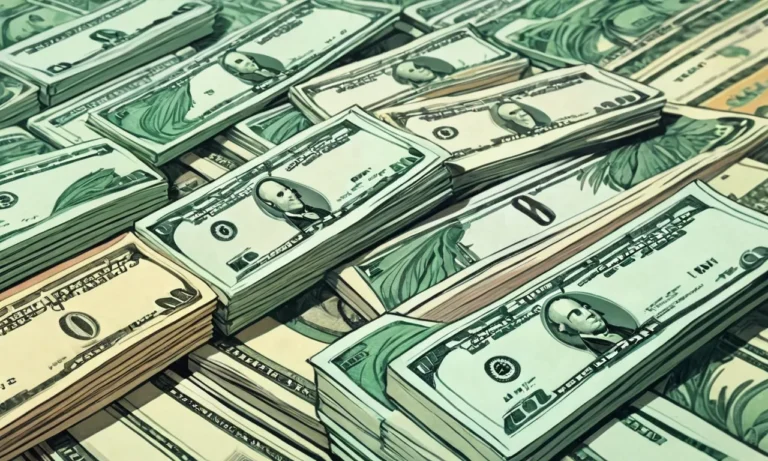What Do Demon Dreams Mean?
Have you ever jolted awake in a cold sweat, heart racing, after a terrifying dream about demons? You’re not alone. Dreams about demons are surprisingly common and can leave us feeling shaken and confused. But what do these unsettling nighttime visions actually mean?
In this comprehensive guide, we’ll explore the fascinating world of demon dreams, uncovering their potential meanings, psychological interpretations, and cultural significance. Whether you’re looking to understand your own demonic nightmares or simply curious about this intriguing dream phenomenon, read on to learn everything you need to know about demon dreams.
What Are Demon Dreams?
Demon dreams typically involve encounters with evil spirits, devils, or other malevolent supernatural entities. These dreams often evoke intense feelings of fear, dread, and helplessness. Common themes in demon dreams include:
- Being chased or attacked by demons
- Demonic possession of yourself or others
- Battling or fighting demons
- Witnessing demonic rituals or sacrifices
- Demons appearing as shadowy figures or with grotesque features
- Feeling an evil presence or hearing demonic voices
While deeply unsettling, it’s important to remember that demon dreams are a normal part of the human dreaming experience. They don’t necessarily indicate anything sinister in your waking life. Instead, they often represent internal conflicts, fears, or negative emotions that your subconscious mind is processing.
Why Do We Have Demon Dreams?
There are several potential reasons why demon dreams occur:
- Processing fear and anxiety: Demon dreams may be your mind’s way of confronting and working through deep-seated fears or anxieties.
- Reflecting inner turmoil: These dreams can symbolize internal struggles, guilt, or negative aspects of yourself that you’re grappling with.
- Cultural and religious influences: Exposure to demonic imagery in media, religion, or folklore can shape our dreams.
- Trauma or stress: Overwhelming life events or chronic stress may manifest as threatening entities in dreams.
- Sleep disorders: Certain sleep conditions like sleep paralysis can produce hallucinations that feel demonic.
Understanding the potential triggers for demon dreams can help put them in perspective and reduce their power to disturb us.
Psychological Interpretations of Demon Dreams
From a psychological standpoint, demon dreams often represent aspects of our own psyche rather than literal supernatural encounters. Here are some common interpretations:
- Shadow self: Demons may embody the darker, repressed parts of our personality that we struggle to acknowledge.
- Guilt and shame: These dreams could reflect feelings of guilt over past actions or perceived moral failings.
- Loss of control: Demons might symbolize situations in life where we feel powerless or overwhelmed.
- Negative influences: They may represent toxic people or harmful habits in our lives.
- Transformation: Battling demons could signify internal growth and overcoming personal challenges.
By viewing demon dreams through a psychological lens, we can gain valuable insights into our subconscious mind and emotional state.
Cultural and Religious Perspectives on Demon Dreams
Beliefs about demon dreams vary widely across cultures and religions. Here’s a brief overview of some perspectives:
| Culture/Religion | View on Demon Dreams |
|---|---|
| Christianity | Often seen as spiritual warfare or tests of faith |
| Islam | May be interpreted as encounters with jinn or warnings against sin |
| Hinduism | Could represent negative karma or spiritual imbalance |
| Buddhism | Viewed as manifestations of inner turmoil or attachments |
| Native American | Might be messages from the spirit world or signs of disharmony |
| Modern Western | Generally interpreted psychologically rather than supernaturally |
While these cultural interpretations can provide context, it’s important to consider your personal beliefs and experiences when analyzing your dreams.
Common Types of Demon Dreams and Their Meanings
Let’s explore some frequently reported demon dreams and their potential significance:
- Being chased by demons: This could indicate you’re avoiding confronting a problem or negative emotion in your waking life.
- Fighting demons: May represent your struggle against personal vices, bad habits, or challenging life circumstances.
- Demonic possession: Could symbolize feelings of losing control or being overtaken by a powerful negative influence.
- Demons speaking to you: Might reflect internal negative self-talk or listening to bad advice from others.
- Transforming into a demon: May signify fear of your own potential for darkness or negative behavior.
Remember, dream interpretation is highly personal. The meaning of your demon dream may be unique to your individual circumstances and emotions.
How to Stop Having Demon Dreams
If you’re troubled by frequent demon dreams, try these strategies to reduce their occurrence:
- Practice good sleep hygiene: Maintain a consistent sleep schedule and create a relaxing bedtime routine.
- Address daytime stress: Find healthy ways to manage anxiety and process negative emotions.
- Limit scary media: Reduce exposure to horror movies, true crime shows, or other frightening content before bed.
- Try dream rewriting: Visualize a positive ending to your demon dream while awake to potentially influence future dreams.
- Seek professional help: If demon dreams are severely impacting your well-being, consider talking to a therapist or sleep specialist.
When to Seek Help for Demon Dreams
While occasional demon dreams are normal, persistent nightmares about demons can be distressing and impact your quality of life. Consider seeking professional help if:
- Demon dreams occur frequently and disrupt your sleep
- You experience intense anxiety or fear that lingers after waking
- The dreams interfere with your daily functioning or mental health
- You have difficulty distinguishing between dreams and reality
A mental health professional can help you explore the underlying causes of your demon dreams and develop coping strategies.
The Positive Side of Demon Dreams
Believe it or not, demon dreams can have positive aspects. They may:
- Prompt personal growth and self-reflection
- Encourage you to confront and overcome fears
- Highlight areas of your life that need attention
- Spark creativity and imagination
- Provide cathartic release for pent-up emotions
By reframing demon dreams as opportunities for insight and growth, you can transform these unsettling experiences into valuable tools for self-discovery.
Fascinating Facts About Demon Dreams
To conclude our exploration of demon dreams, here are some interesting tidbits:
- Demon dreams have been recorded throughout human history, appearing in ancient texts and folklore worldwide.
- Some people report experiencing sleep paralysis in conjunction with demon dreams, which can make the experience feel extremely real.
- Lucid dreamers (those who can control their dreams) sometimes intentionally summon and interact with dream demons as a form of psychological exploration.
- Certain medications can increase the likelihood of vivid or disturbing dreams, including demon dreams.
- Dream symbols associated with demons can vary significantly across cultures, reflecting diverse spiritual beliefs and traditions.
Conclusion
Demon dreams, while frightening, offer a fascinating window into the human psyche. By understanding their potential meanings, cultural significance, and psychological interpretations, we can approach these dreams with curiosity rather than fear. Remember, you have the power to confront your dream demons and uncover the valuable insights they may hold.
Whether you view demon dreams through a spiritual, psychological, or cultural lens, they ultimately reflect aspects of your inner world. By paying attention to these dreams and exploring their significance, you can gain a deeper understanding of yourself and your subconscious mind.
So the next time a demon lurks in your dreams, take a deep breath and ask yourself: What is this dream trying to tell me? The answer might just lead to profound personal growth and self-discovery.







